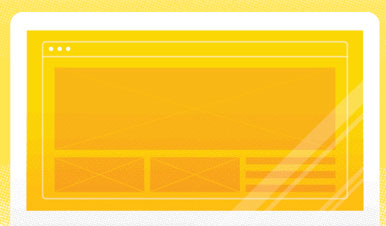By using our site, you agree to our Cookie Policy
Accept
Share
Five Things Every Successful Website Needs
This list has been adapted from a podcast interview with ATTCK President & Founder, Dennis Plucinik. Scroll down to read an excerpt from that interview, or listen to it in its entirety here.
1. MANAGE EXPECTATIONS
2. KEEP IT SIMPLE
3. EMPATHIZE WITH YOUR USERS
4. DEFINE YOUR BRAND
5. UNDERSTAND BUSINESS GOALS
Excerpt from ATTCK President and Founder, Dennis Plucinik’s interview
Phoebe Chongchua: If you want to put together a website and you get too caught up in it, sometimes you make some big mistakes, because you’re only looking at it through your eyes.
Dennis Plucinik: That’s totally true. There’s one rule that we impress upon our clients: You are not your users. That’s a really hard mentality to break out of, because you think you know everything that should be communicated about your company. But it’s hard to put yourself in your clients’ shoes. They don’t know who you are, they don’t know what services you provide, and maybe they even use their own language. So we say let’s just research, look at who the users are and what they expect, and then communicate with them in the way that’s most effective.
PC: I want you to weigh in on this quote: “A website without visitors is like a ship lost in the horizon.”
DP: There’s another funny quote about blogging: “Never before have so many people had so little to say to so few people.” It really is all about the audience. It’s how you get your message in front of people. Otherwise you could just paint a picture and put it on your wall and have the same effect.
PC: Share a meaningful success quote or a tip you’d like to share.
DP: I’ve never stopped working, learning, trying, believing in myself, and trying to move forward. It’s just how I’m wired. There’s never been anything I’ve looked at and said, That’s an obstacle I can’t get past. You have to find a way through, and if you persist, you’ll keep moving forward. That’s the thing that’s driven me. No matter what, there will always be obstacles. You just don’t stop.
PC: Take us back in time and fill in any blanks that I’ve left out of your career, and take us to the moment that you consider your career highlight.
DP: I’ve been working for as long as I can remember. Even back in middle school, when I heard that a friend of mine had a job, I wanted a job. So I started working on a farm when I was 12, and then I worked on a paper route. When I was 16, a friend of mine sold a website in a multimillion-dollar deal, and he was 18. I thought, What just happened? Here I was working on a farm, and now this guy’s driving Lamborghinis. I’ve gotta do something about that—and I got the bug.
I was in fine arts in school at the time. Photoshop came out, the internet came out, and I was hooked. I started making websites at 16, selling on eBay at 17. I’ve really haven’t stopped since then. I worked myself through college doing freelance web design. I worked at an e-commerce store, moved here to New York in 2008, and spent the following six years working through many of the top ad firms, making a lot of great connections and meeting incredibly talented people.
The last firm I left was basically the end of what was a bad culture for me. I was starting to realize that a lot of these companies were set up to burn out young people and take advantage of them, and I saw that as a failure from somewhere up along the chain. Designers and developers were basically paying for it by having to work nights and weekends, and I thought, that’s just pure theft. I have a family, I have a daughter, and I want to spend time with her. I’d rather not be staying up all night, as much as I’m proud to do it. There’s this hero culture that the environment breeds, and I always thought that it was excluding people who were older or who had other more advanced priorities. They couldn’t compete with someone who had nothing else to do but work.
I decided at that point that I wanted to start this company and do things right. Eight months later, we hit $1 million in revenue, and that was, I think, my career highlight. It still gives me chills to think about. It proves that if you do things right and you respect people’s work and you surround yourself with talented people, you can succeed.
PC: Go a little deeper into a when-it-didn’t-work moment and share a story about that and what you learned from it. Really dive into the experience.
DP: Nobody tells me what to do every day. There’s nobody guiding me and saying This is what happens next or Here’s what you should do tomorrow. It’s all trial and error. One hypothesis that we had early on was that we could hire people who didn’t have a lot of experience and then train them to do things in what we thought of as the right way. In hindsight that was an arrogant approach, because we weren’t looking at people in terms of their own career goals. Spending all that time training people and then having them leave—all of that work just disappears. On top of that, we grew very quickly, so it started with just me and a partner that I had at the beginning. Within the first six months we had 20 people. Everyone was amazed by our growth, but we really weren’t growing the right way. We were hiring people who weren’t really qualified to do what we needed them to do, and when the growth started to reach a certain point, our process, which we hadn’t really refined well, started to break down. So we brought the team back down to a core of four or five people who are all still with us, actually, and we’ve grown slowly since then.
We’ve focused on hiring people who have a huge amount of experience and are very self-guided and professional. There’s no ego. Everyone is fantastic in their own right, and they’re inspirational to me, so I don’t have to worry about everybody doing the best work. Through our growing pains, that’s the culture we’ve curated.



